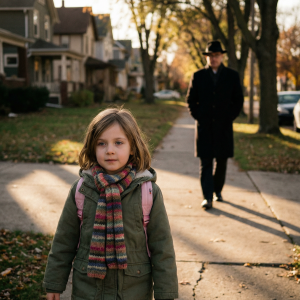Grief has a way of overwhelming our rational thoughts, leading us toward gestures we might never consider under normal circumstances. When faced with the devastating loss of someone we cherish, many people feel compelled to offer one last tender kiss as their final act of love and farewell.
While this impulse stems from the deepest well of human emotion, it’s crucial to understand that such intimate contact with the deceased carries unexpected health hazards that mourners rarely consider during their most vulnerable moments.
The harsh truth is that once life ends, the human body immediately begins transforming in ways that pose genuine risks to the living. Direct physical contact—particularly intimate gestures like kissing—can expose grieving individuals to dangers they never anticipated.
Let me walk you through the important health considerations surrounding final farewells, explained in straightforward terms that everyone can understand.
Seven Critical Health Concerns to Consider
1. Bacterial Overgrowth and Infection Risks
The moment death occurs, our body’s natural defense systems shut down completely. The beneficial bacteria that once coexisted peacefully within our organs and tissues suddenly face no opposition to their growth. Without immune system regulation, these microorganisms multiply at alarming rates, transforming from harmless residents into potentially dangerous pathogens.
When someone kisses a deceased person, they risk introducing these unchecked bacterial colonies into their own body through small cuts in the lips, mouth sores, or simply through normal mucous membrane absorption.
2. Lingering Viral Threats
While most viruses cannot survive long without a living host, certain pathogens remain viable for surprising lengths of time after death—especially when the deceased suffered from infectious diseases. Conditions like hepatitis, HIV, tuberculosis, and various respiratory illnesses can persist in bodily fluids and tissues well beyond the moment of passing.
Direct contact with lips, skin, or any exposed areas increases the likelihood of viral transmission, particularly if the mourner has any open wounds or compromised immune function.
3. Exposure to Decomposition Byproducts
Within hours of death, cellular breakdown begins producing various fluids as tissues start their natural deterioration process. These liquids carry concentrated levels of harmful microorganisms and emit distinctive odors that signal their toxic nature.
Kissing exposes mourners to these substances through direct skin contact and potential ingestion, possibly leading to stomach upset, nausea, skin irritation, or more serious complications depending on individual sensitivity levels.
4. Inhalation of Dangerous Gases
As decomposition progresses, the body releases various gases containing bacterial toxins and other harmful compounds. Bringing your face close enough to kiss the deceased means breathing in concentrated levels of these airborne contaminants.
Sensitive individuals might experience immediate respiratory distress, dizziness, headaches, or develop more serious lung complications, especially those with pre-existing breathing conditions or weakened immune systems.
5. Lasting Psychological Impact
Beyond physical risks, intimate contact with the deceased can create unexpected emotional trauma. The sensory memory of touching cold, altered skin or detecting unfamiliar scents can become deeply embedded in a person’s mind.
Rather than providing comfort or closure, such experiences sometimes intensify grief, create disturbing flashbacks, or establish traumatic associations that complicate the natural mourning process for months or years afterward.
6. Disease Transmission at Gatherings
Funeral services and wakes often involve multiple mourners sharing similar farewell gestures. When several people kiss or touch the same deceased person, they create a chain of potential contamination that extends far beyond individual risk.
Pathogens picked up from the deceased can then spread among the living attendees through subsequent handshakes, embraces, shared meals, or other social interactions common at memorial gatherings.
7. Chemical Sensitivity from Preservation Methods
Modern funeral preparation involves various chemical treatments designed to slow decomposition and improve appearance for viewing purposes. These preservation substances—while necessary for the funeral process—can trigger unexpected allergic responses in sensitive individuals.
Symptoms might include skin rashes, eye irritation, respiratory problems, or more severe reactions in people with chemical sensitivities or compromised immune systems.
Honoring Love Through Safer Alternatives
We completely understand that saying goodbye requires something meaningful and personal—a gesture that reflects the depth of your connection with the person you’ve lost. The desire to offer one final kiss comes from the purest place of love and devotion.
However, expressing that same profound affection doesn’t require putting your own health at risk. Consider these equally meaningful alternatives that allow for intimate farewells while protecting your wellbeing:
Gently holding their hand provides physical connection without exposing yourself to the highest-risk areas. Softly touching their forehead or shoulder offers tender contact through safer skin surfaces. Simply sitting quietly beside them, sharing memories aloud, or whispering final words can feel just as intimate and meaningful.
The love you shared throughout their lifetime—not a single physical gesture at the end—truly defines your relationship and honors their memory.
Protecting Yourself While You Grieve
Taking precautions during this emotionally charged time isn’t about diminishing your love or respect for the deceased. Instead, it’s about recognizing that those we’ve lost would want us to remain healthy and safe as we navigate our grief journey.
Your wellbeing matters not just to you, but to everyone else who depends on you and loves you. Staying healthy during bereavement allows you to properly process your emotions, support other mourners, and carry forward the positive legacy of the person you’re grieving.
Remember: genuine love expresses itself through the beautiful memories you created together and the ways you choose to honor their life moving forward, not through potentially dangerous final gestures.
Your safety is another way of showing respect for the precious life that touched yours so deeply.





